China is a thrilling destination with rich culture, historical sites, and buzzing cities. Staying connected is crucial while traveling for work or pleasure. A local SIM card lets you talk, use maps, and access the internet without pricey international roaming. This complete 2024 SIM card guide will teach you everything about acquiring one in China. This article covers why you need one, the sorts, and the best provider to make your stay in China as seamless as possible.
China has one of the world’s most modern mobile networks, providing high-speed internet in rural places. Due to the language barrier and tight SIM card registration rules, getting and using a SIM card in China might be difficult. This article will explain the procedure and provide you ways to stay connected in China from the time you arrive.
This guide covers practical steps, SIM card types (prepaid vs postpaid, data-only vs voice and data), major mobile network operators (China Mobile, China Unicom, China Telecom), and SIM card purchase locations (airports, carrier stores, online). Additionally, it covers registration documents, plans and pricing, activation and use, and alternatives to local SIM cards including portable Wi-Fi devices and eSIMs.
This article will teach you how to obtain a SIM card in China, provide you personalized advise, and help you use your phone while you’re there. Let’s discuss the specifics to prepare you for a connected and easy China trip.

Why You Need a Chinese SIM Card
Staying connected in China is essential. Given China’s unique digital ecosystem and international service restrictions, a local SIM card is crucial.
1. Connectivity Needs
China is huge and populated, therefore dependable connection is essential. A local SIM card lets you contact relatives and friends locally and abroad. Local SIM cards make calling, texting, and social networking easy. If you’re traveling for business, this lets you stay in touch with coworkers and customers without lost calls or poor internet.
2. Cost Efficient
China charges a lot for international roaming using your own country’s SIM card. International roaming prices for internet, calls, and texts may be costly. Local SIM cards enable you to access data, make calls, and send messages at lower rates. This cost savings benefits long-term travelers and expats who require constant connection.
3. Internet Access
The “Great Firewall,” which blocks Google, Facebook, and Twitter, is a unique online environment in China. A local SIM card gives internet access and improves compatibility with Chinese services and applications. A local SIM card lets you use WeChat and Alipay, which are vital for communication, payments, and more in China.
SIM card types
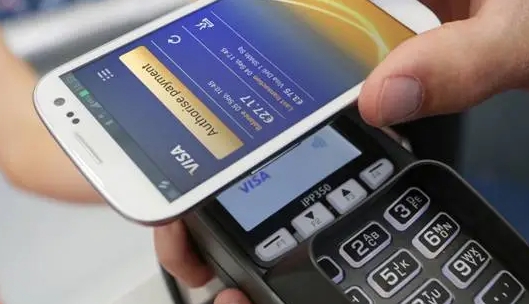
Understanding China’s SIM card kinds is essential for choosing the right one. Prepaid, postpaid, data-only, and voice-and-data SIM cards are the primary varieties. All types have benefits and meet distinct user demands.
1. Prepaid SIMs
Travelers and short-term visitors choose prepaid SIM cards. These cards are simple to get and use without a contract or credit check. Prepay for your data, phone, and text needs. Prepaid SIM cards’ key benefit is the ability to fill up your balance, giving you spending discretion. This SIM card is suitable for vacationers who seek temporary access without long-term obligations.
2. Postpaid SIMs
Postpaid SIM cards are for foreigners and long-term residents. Monthly billing cycles for these cards require payment at the end of each month. Postpaid plans provide better prices and more services than prepaid plans. Some demand a contract and a local bank account for invoicing. This SIM card is suitable for long-term visitors to China who require reliable service.
3. Data-only SIMs
Users that require internet connectivity rather than phone services utilize data-only SIM cards. These SIM cards provide data for surfing, applications, and internet services but not phone calls or SMS. Data-only SIM cards are ideal for tech-savvy consumers who utilize Skype, WhatsApp, and WeChat for calls and texts. These SIM cards are also ideal for tourists who require navigation and information but not phone services.
4. SIM Cards for Voice and Data
SIM cards that provide internet and phone calls are a complete solution. These cards are perfect for those who require data and conventional telephone. They are ideal for short-term tourists and long-term residents who use the internet and make local and international calls. This SIM card keeps you connected and handles data and communication demands effectively.
Major Chinese Mobile Network Operators
Three significant Chinese mobile network carriers are China Mobile, China Unicom, and China Telecom. These operators provide various benefits and meet diverse user demands. Knowing their strengths and shortcomings might help you pick a service.
1. China Mobile
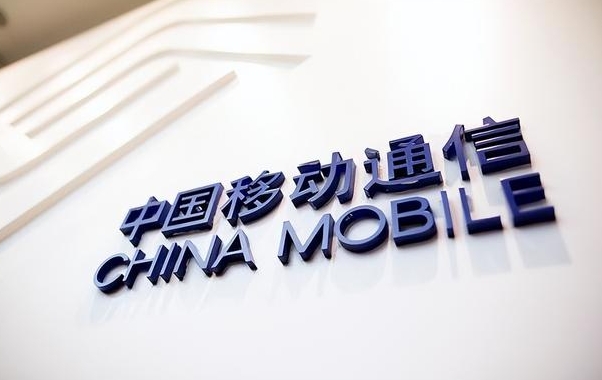
China Mobile is the biggest mobile network provider in China, with the most customers and coverage. The operator’s extensive network architecture guarantees connection even in rural places. China Mobile provides several prepaid and postpaid programs to meet consumer demands. China Mobile offers nationwide high-speed internet due to its significant 4G and 5G network coverage. Some consumers may find its plans more pricey than other carriers.
2. China Unicom
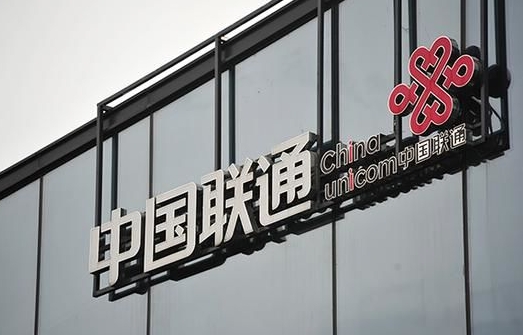
China Unicom offers reasonable prices and innovative services. As China’s second-largest operator, it has great urban coverage. China Unicom’s inexpensive data rates and appealing bundles attract data-heavy consumers. The operator supports several foreign roaming agreements, making it a suitable alternative for tourists. For individuals going to distant places, its rural coverage may be less than China Mobile’s.
3. China Telecom

China Telecom prioritizes high-speed internet and dependable connection in urban and suburban locations. China’s third-largest mobile network provider has robust 4G and expanding 5G networks. China Telecom has several plans, including international traveler ones. China Telecom prioritizes customer care and support, making it a suitable choice for mobile consumers who need help. Like China Unicom, its rural coverage may be limited compared to China Mobile.
Comparison:
| Feature | China Mobile | China Unicom | China Telecom |
|---|---|---|---|
| Coverage | Widest coverage, especially strong in rural areas. Covers 99% of China’s population. | Good coverage, particularly strong in urban areas. Covers 95% of China’s population. | Excellent coverage, especially in urban areas. Covers 97% of China’s population. |
| Pricing | Competitive pricing with a variety of plans. Basic plans start around RMB 30-50 per month. Tourist plans range from RMB 100-300. | Competitive pricing, often slightly cheaper for high data plans. Basic plans start around RMB 30-50 per month. Tourist plans range from RMB 100-300. | Competitive pricing with comprehensive plans. Basic plans start around RMB 30-50 per month. Tourist plans range from RMB 100-300. |
| Data Speed | Generally high data speeds, especially in 4G and 5G networks. Average 4G speed: 20-50 Mbps. Average 5G speed: 200-500 Mbps. | High data speeds, comparable to China Mobile. Average 4G speed: 20-50 Mbps. Average 5G speed: 200-500 Mbps. | High data speeds with robust 5G network. Average 4G speed: 20-50 Mbps. Average 5G speed: 200-500 Mbps. |
| Customer Service | Good customer service with widespread availability. English support available in major cities. | Good customer service with English support available. May vary in smaller cities. | Generally good customer service with English support available in major cities. |
SIM Card Purchase Locations
SIM cards are easy to get in China if you know where to search. Travelers and locals may easily discover and buy a SIM card at many handy places and ways.
1. Airports

Buying a SIM card in China is easiest at airports. SIM card kiosks and retailers are abundant at Beijing Capital, Shanghai Pudong, and Guangzhou Baiyun airports. These kiosks sell SIM cards from China Mobile, China Unicom, and China Telecom.
Advantages: Buying a SIM card at the airport lets you connect quickly, which is important for finding your hotel and contacting family and friends.
Airport rates may be more than city pricing, but convenience generally offsets the difference. Airport kiosk clerks are more likely to speak English, making purchases easier for non-Chinese speakers.
2. Mobile Carrier Stores
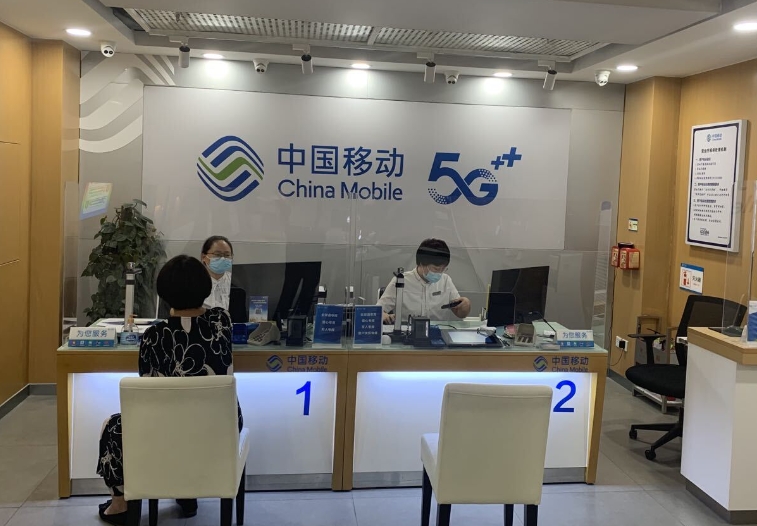
Visit a city mobile carrier shop for a wider choices and better pricing. China Mobile, China Unicom, and China Telecom have several retail shops nationwide. These shops have several plans and can give details.
Advantages: Carrier shops have the most SIM cards and plans, including special prices and promotions not accessible at airport kiosks or other retail places. Staff can provide extensive guidance and help.
Note that many large city shops offer English-speaking personnel or interpreters. If you need to register your SIM card or postpaid plan, a carrier shop can help.
3. Shops and Kiosks

SIM cards are sold at retail stores and kiosks around China. Prepaid SIM cards are sold in 7-Eleven, electronics retailers, and SIM card kiosks.
Advantages: If you need a SIM card quickly and are far from a carrier shop, these stores are a fast and straightforward option.
Considerations: Selection may be restricted and personnel may know less about plans and services than carrier outlets. Comparison shopping is advised since these stores’ prices might fluctuate.
4. Order Online
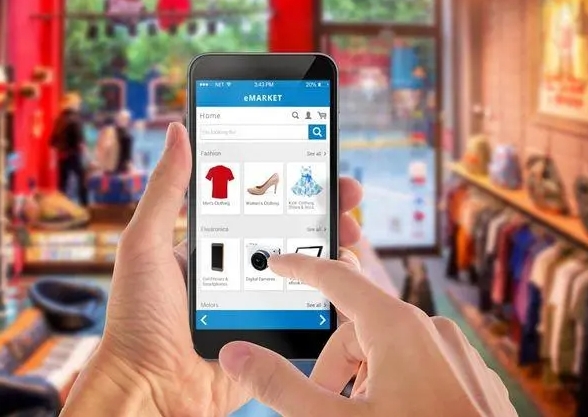
Online SIM card purchases before flying to China are an alternative for individuals who want to plan. Chinese SIM cards may be sent to your home country or China lodging from many sources.
Advantages: Online shopping lets you compare plans and costs and assures you have a SIM card when you arrive. Some providers include thorough English instructions, which might be beneficial.
Considerations: Avoid frauds by using reliable internet retailers. Consider delivery dates and delays, particularly if you’re buying overseas.
Documentation Required
China has tight SIM card registration rules to avoid fraud and ensure security. Obtaining a SIM card legally and easily requires understanding the documents and registration procedure.
1. Passport
Your passport is needed to buy and register a SIM card in China. All SIM cards in China must be registered to a valid ID, and foreigners need a passport.
Details: SIM card registration requires a passport. To comply with regulatory obligations, shop workers may photograph your passport and you.
Important: This registration procedure helps the Chinese government identify and regulate mobile users, preventing abuse and fraud. SIM cards may be revoked or not activated without correct registration.
2. Extra Identification
If you need extra services or a postpaid plan, you may need additional identification.
Visas, residency permits, and Chinese IDs are examples of additional ID.
These papers are usually needed for postpaid plans, which need a contract and monthly invoicing.
3. How to Register
Registration is simple but must be done properly to activate your SIM card.
Steps:
Show Your Passport: Show your passport to the SIM card salesperson.
You may need to fill out a registration form with your personal information.
Photo verification: The shop personnel will snap a photo of your passport and maybe you holding it.
Staff will register and activate your SIM card. It may take several minutes or hours, depending on the shop and time.
Tips: Buy your SIM card during business hours to avoid registration or activation complications. Make sure airport kiosk and convenience shop workers register accurately.
Plans and Pricing
Making the most of your SIM card in China requires choosing the proper plan and understanding pricing. Plans and costs vary by operator, plan type, and use.
1. Basic Plans
Light users who require voice and text with little data should utilize basic plans. These programs are usually the cheapest and easiest.
Basic plans contain limited data, local phone minutes, and SMS messaging. They are great for vacationers who require occasional internet and frequent contact.
Prices: Basic plans start at RMB 30-50 per month, depending on the operator and bundle.
2. Tourist Plans
Tourist plans often feature ample data and international calling for short-term visitors.
Features: These plans normally include several GB of data, free inbound calls, and a certain quantity of international call minutes. Free access to popular applications or discounts on local attractions are common.
Tourist plans cost between RMB 100 and RMB 300, depending on data and amenities. These programs usually last 7–30 days.
3. Premium Plans
Premium plans are for heavy customers that demand high-speed internet, many phone minutes, and other amenities.
Unlimited internet, huge call minute bundles, and international roaming are common features of premium plans. VIP customer support and unique promos may also be offered.
Prices: Depending on the operator and amenities, these plans may cost RMB 200 to RMB 500 or more each month.
4. Recharge and Top-Up
To maintain service, you must recharge or top up your SIM card, regardless of the package.
Methods: The operator’s website, mobile applications, and retail and convenience shops accept recharges. Some carriers offer bank account or credit card-linked automatic top-ups.
Considerations: To prevent service disruptions, watch your consumption and fill up your balance before it runs out. When your balance drops, several carriers send SMS alerts.
Use and Activation
After getting your SIM card, activating and controlling it is vital. Proper activation lets you use your new SIM card without problems.
1. SIM Card Activation
The SIM card activation procedure depends on where you bought it and the carrier’s instructions.
The workers at an airport kiosk or carrier shop will usually activate your SIM card. They will install the SIM card, test it, and register your phone.
Self-Activation: Online or convenience shop SIM cards may need activation. To activate a SIM card, you may need to call a number or visit a website.
Time Frame: Operator and registration procedure determine activation time, which might be quick or many hours.
2. Managing Your Account
Once your SIM card is enabled, you must manage your account to maintain service and remain under budget.
Most carriers let you to monitor your balance and data consumption via their websites, mobile applications, or by calling numbers. You should check your consumption to prevent surprise expenses.
As said, you may recharge your SIM card online, via mobile applications, or at retail stores. Set reminders to top up before your balance runs out.
Customer Support: Multiple channels are accessible for SIM card difficulties and help. Most operators provide phone, email, and chat assistance. Store these contact data for convenient access. Many operators have English-speaking support personnel or can translate, making aid for non-Chinese speakers easy.
Mobile applications: Most major carriers provide mobile applications for account management. Checking your balance, use history, topping up, and changing plans are standard functions of these applications. Account management and customer support are easier with these tools.
Enable SMS alerts for your account. Low funds, future payments, and data consumption thresholds might trigger these messages. Service outages may be avoided by following these warnings.
3. Travel and International Use
If you go beyond China or make international calls, you must comprehend roaming and foreign use.
Most Chinese carriers provide international roaming options to use your SIM card abroad. Examine these insurance before going since cost and coverage might vary greatly. Plans charge per MB or set fee for data consumption.
An international calling package is worth considering if you make frequent overseas calls. Many of these programs provide reduced calls to specified countries. Without an international plan, international calls are expensive.
You may use a local SIM card in a place you’re visiting instead of roaming. This may save money, particularly for longer visits. Check whether your phone is unlocked and local network-compatible.
4. Data Use and Connectivity
Staying connected is most SIM card users’ priority. Manage data use and ensure connection with these recommendations.
Use Wi-Fi wherever feasible to preserve cell data. Many hotels, cafés, and public venues provide free Wi-Fi. Use Wi-Fi for watching and downloading to save mobile data.
Data Management Tools: Monitor and regulate data use using phone or carrier applications. Data limitations and warnings help you stay inside your plan.
Coverage: Mobile connection quality varies by location. Urban locations have good coverage, however rural areas may receive poorer signals. See where your carrier’s coverage maps provide the greatest connection.
5. Privacy and Security
When using a SIM card abroad, cellphone conversations must be secure and private.
To prevent unauthorized usage if your phone is lost or stolen, enable a SIM card lock (PIN code). This secures mobile communications.
Secure Your Device: Protect your data with strong passwords, biometric locks, and other phone features. For the newest security fixes, update your phone’s software regularly.
Security Risks: Use public Wi-Fi networks with caution. Avoid sensitive data and financial activities over insecure networks.
Troubleshooting Common Issues
Your SIM card or cell service may malfunction even with the finest planning. Here are frequent issues and remedies.
1. Activation Issues
SIM card not activating? Try these steps:
Reinstall the SIM card: Sometimes reinstalling the SIM card fixes activation difficulties.
Check for Instructions: Follow all carrier activation instructions. This may include calling an activation number or visiting a website.
If problems persist, contact your carrier’s customer service. They may check your SIM card registration and aid with activation.
2. Issues with connectivity
For weak signal or connectivity:
Change Location: Signal strength varies by location. Moving to a better-covered region may boost connection.
Make sure your phone’s network settings are accurate. This may include picking a network mode (4G/5G) or manually selecting an operator.
Sometimes rebooting your phone refreshes the network connection, fixing connectivity troubles.
3. Data Usage Concerns
Use more data than expected:
Track use: Use your phone’s built-in data use meter or the carrier’s app. Find the most data-hungry applications and modify their settings.
Limit Background Data: Many applications utilize background data. Limit background data use for non-updating applications.
Enable phone or carrier data-saving features to decrease data use.
4. Billing and Payment Issues
If you have invoicing or payment issues:
Check Your Bill: Look for unusual charges. See full use records to clarify costs.
If your bill has an issue, contact customer service for explanation and resolution. They can explain and remedy errors.
Set Up Auto-Pay: Use your bank or carrier’s app to automate payments to prevent missing them.
Conclusion
A SIM card in China may be easy to purchase and use with the appropriate knowledge. You can assure flawless mobile access in China by knowing where to get a SIM card, the appropriate papers, available plans and pricing, and how to activate and maintain your account. Protect your personal data by becoming educated on security and privacy standards. Staying connected in China requires a dependable SIM card, whether you’re a guest or a resident.










